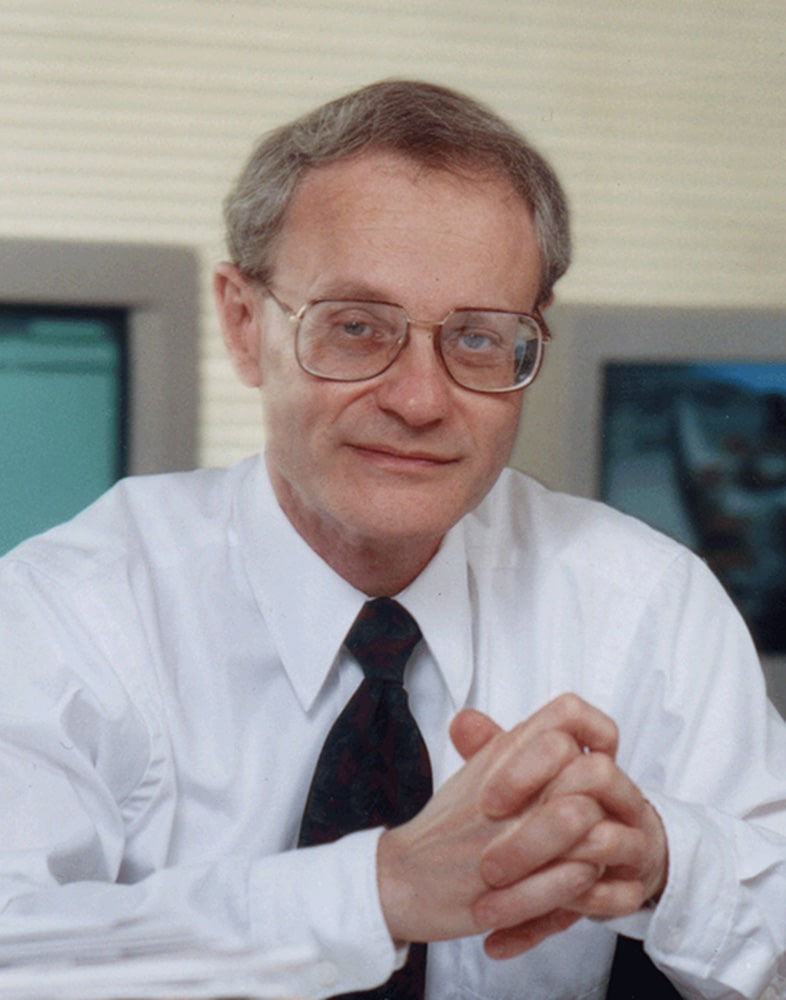Honoring Carnegie Mellon Visionary Computer Scientist Howard Wactlar
- Marketing and Communications
- 412-268-1151
Carnegie Mellon University lost a remarkable visionary Monday with the passing of Howard Wactlar, who pioneered computing on campus for nearly half a century while advancing the nation's research agenda through his work with the federal government.
Wactlar, Alumni Research Professor of Computer Science Emeritus, held appointments in multiple departments in the School of Computer Science, including the Computer Science Department and the Robotics Institute. He died March 1 at the age of 77.
"Howard was a profoundly insightful scientist and a big thinker, whose ability to connect computer science to other disciplines enhanced our institution in innumerable ways," said Carnegie Mellon President Farnam Jahanian. "Before coming to CMU, I had the pleasure of working with him at the National Science Foundation, where he provided vision and leadership for information science and intelligence systems. His contributions left a lasting impact on the nation's research agenda in ways that will benefit our society for decades to come."
Wactlar's CMU career began with building a state-of-the-art research computing operation for the then relatively new Computer Science Department, well before the existence of the School of Computer Science. The facility housed abundant and reliable computing resources available via timesharing, included the world's first shared-memory multiprocessor system and was one of the earliest sites on the ARPANet — a precursor to the Internet.
Leveraging his computing expertise, Wactlar played an instrumental role in the launch of the Software Engineering Institute (SEI) at Carnegie Mellon and served as its associate director. SEI stands today as one of only 10 federally funded research and development centers sponsored by the U.S. Department of Defense.
In recent years, Wactlar took leave from the university to serve at NSF. He was the division director for Information and Intelligent Systems and an advisor within the Directorate for Computer and Information Science and Engineering during the Obama administration. In that role, he helped to develop and garner participation from other federal agencies for the National Robotics Initiative and the Smart and Connected Health program. Wactlar provided leadership and vision to advance how computer science could be used to solve challenges facing humanity. It included encouraging researchers across the country to develop robotic systems that could work in close collaboration with humans, using computing to help elderly people age in place in their own homes, augmenting human capabilities to enable safer and more efficient work, and developing re-skilling programs as the nature of jobs changes.
"Howard Wactlar was a source of advice and wisdom for many of us working on the national strategy," said Tom Kalil, chief innovation officer at Schmidt Futures, who served in senior White House science and technology policy roles for former Presidents Bill Clinton and Barack Obama. "He was incredibly generous with his time, and his big-picture perspective, based on his broad range of experience, and was invaluable as we worked to improve the computing landscape in areas such as digital libraries, robotics and improving the quality of life for people with disabilities."
Over the four decades he spent at CMU, Wactlar served in various research, technical and administrative capacities. He was director of the joint CMU/IBM Information Technology Center (ITC) that pioneered ubiquitous campus computing, providing a model of university computing infrastructure for the world. He was the primary architect and project director of the Informedia Digital Video Library. The project was one of the original NSF Digital Library Initiatives, which sought to develop a system for organizing information of the then-developing World Wide Web.
Wactlar also developed technologies that aligned with his concern for human health and behavior and those with disabilities. He served as scientific director of the NSF Quality of Life Technology Engineering Research Center, which was co-led by CMU and the University of Pittsburgh, and was a leader of the Caremedia project.
"Howard put together an eclectic group of people and created the Computer Science Research Computing Facilities group," said Sylvia Smith, manager in SCS Computing Facilities who was a colleague of Wactlar for nearly 40 years. "They took to heart every aspect of computing and put forth incredible effort to assist whatever project came to them. In the early days of the Computer Science Department, the facilities team learned and flourished with Howard as our leader."
Wactlar was widely recognized for his humble leadership and ability to inspire others.
"Howard was an exemplar of people who quietly got things done and focused on the work, without drawing attention to themselves," said Martial Hebert, professor of robotics and dean of the School of Computer Science. "For Howard, it was always about the greater good of the institution. For example, he and his wife, Mary, donated a seat in the Rashid Auditorium that honors 'students, staff and faculty that are the greatness of SCS.' He will be greatly missed."
Wactlar received degrees from the Massachusetts Institute of Technology and the University of Maryland.
He is survived by his wife Mary Wactlar, daughter Sarah (Scott) Langbein, step-son of Ben (Raquel) Cohen, step-daughter Sarah Cohen, sister Linda (Murray Feller), and beloved grandchildren, Maddie, Andrew, and Lilah Langbein and Gabriella and Jacqueline Cohen.
